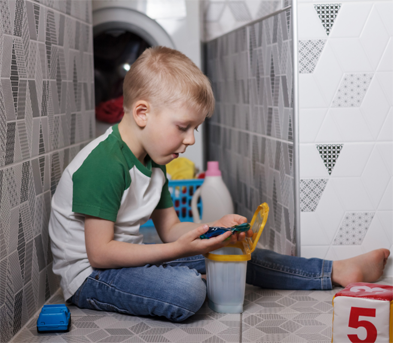Poison Prevention
April 16, 2021
Ninety percent of poisonings occur at home and sadly, most are easily prevented. Poisoning affects people of all ages, although children under age six are most likely to be accidentally poisoned and account for nearly half of all calls made to poison control centers. Prescription drug overdose is the leading cause of poisoning across all age groups, but in children ages six and under, cosmetics and personal care products top the list.
A few other common items to look out for when it comes to poisoning around the house are some household plants, e-cig products, and vapors such as carbon monoxide.
Here are 8 tips for poison-proofing your home:
- Store all prescription and over-the-counter medicine in a locked cabinet. Do the same for vitamins and supplements, which can also be harmful.
- Follow directions carefully on all medications and read warning labels.
- Beware of medications, cosmetics and other small items left in purses. Items containing button batteries are especially dangerous. About 3,000 kids go to the ER each year after swallowing these batteries, which can lead to permanent damage in as little as 2 hours. Children can easily get to items left in purses and swallow them before anyone notices.
- Keep cosmetics, perfumes and personal care products where children can’t see or reach them. These colorful items attract kids’ attention and can be very dangerous if swallowed.
- Keep medicine, cleaners, chemicals, oils and other potential poisons in their original containers so you know what they are. This makes it less likely that they will be mistaken for something else.
- Store all chemicals, such as household cleaners, detergents, automotive products and pesticides, in a securely locked cabinet, out of the reach of children. Never underestimate your child’s ability to climb.
- Never keep potential poisons in the same place you keep food. Children and seniors especially can mistake dangerous items for something they can eat.
- Get rid of unused or expired medications.
Some signs to keep in mind that poisoning may have occurred: nausea and vomiting, cramps, dizziness, foaming or burning around the mouth, difficulty breathing, seizure, confusion, or unconsciousness.
Please, set aside some time this week to go over the checklist above to keep your family and friends safe when they are in your home.
If you suspect a member of your family has ingested one of the above poisons, remember that Mille Lacs Health System has a 24/7 Emergency Department on the Onamia campus.
